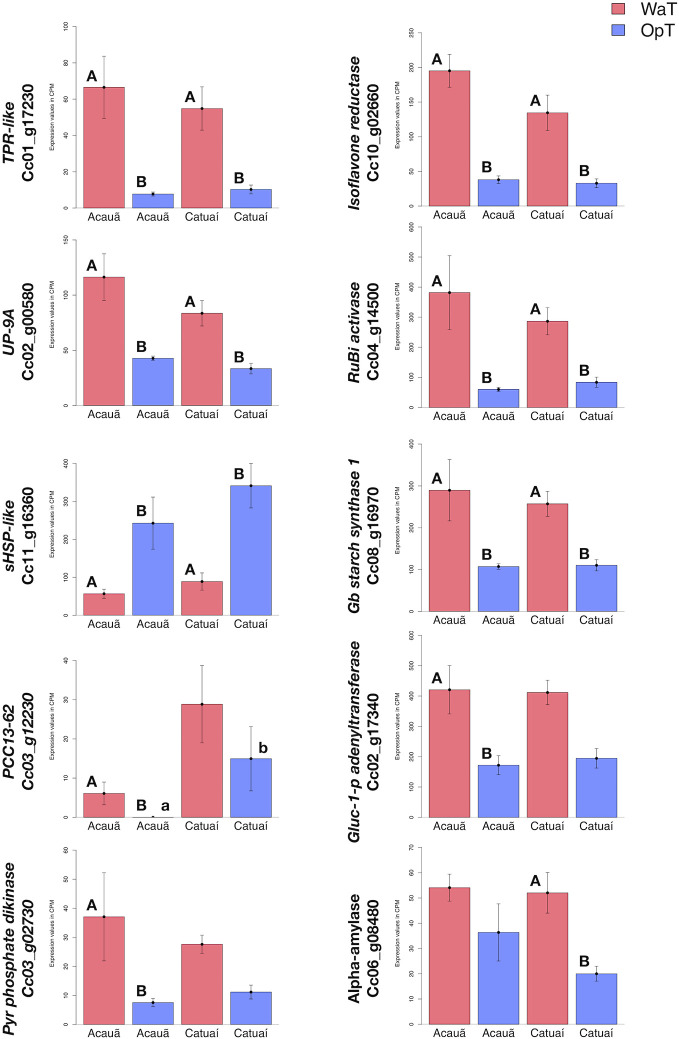Figure 3.
RNAseq expression analysis of warm-responsive DEGs related to energy metabolism and thermotolerance. Based on analysis of DEGs (Figure 2D and Table S2), we evaluated RNAseq expression of ten DEGs related to energy metabolism and thermotolerance; six DEGs that were shared between the two genotypes and four that were exclusive to one of the two genotypes, three in cv. Acauã and one in cv. Catuaí, respectively: the TPR-like (Cc01_g17230), isoflavone reductase (Cc10_g02660), UP-9A (Cc02_g00580), RuBisCO activase (RuBi activase; Cc04_g14500), small heat shock protein like (sHSP-like; Cc11_g16360), and granule-bound starch synthase 1 (Gb starch synthase 1; Cc08_g16970); desiccation-related_protein_PCC13-62 (PCC13-62; Cc03_g12230), glucose-1-phosphate adenyltransferase (Gluc_1_p_adenyltransferase; Cc02_17340); pyruvate phosphate dikinase (PPDK; Cc03_g02730); and alpha-amylase (Cc06_g08480). Statistical analyses were performed comparing the same coffee genotype at different temperatures (capital letters) and comparing different genotypes at the same temperature (small letters). Differences were considered significant at p<0.05 (see Table S2 for details). Error bars represent standard errors. Labels: OpT (blue columns), optimal temperature (23/19°C, day/night); WaT (red columns), warm temperature (30/26°C, day/night). Catuaí both under OpT or WaT had five biological repetitions, as well as Acauã under WaT. Acauã under OpT had four biological repetitions. Error bars depict the standard error.

